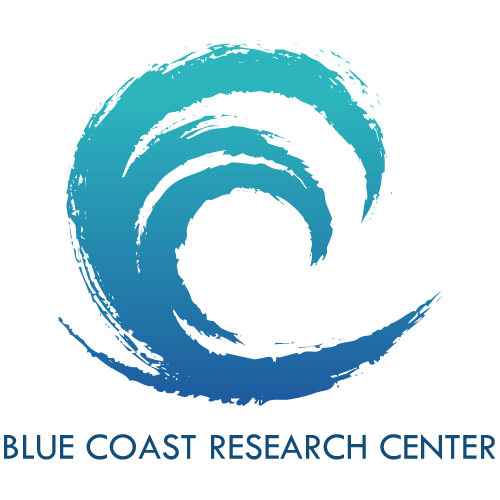new england shippers opposed a war against england quizlet
Why did the Federalists oppose the War of 1812 so vehemently? There was a complete turnover of the New Hampshire delegation.[4]. It launched Jackson on a political career that led to the presidency. Find out how you can intelligently organize your Flashcards. The US and Britain both suffered humiliating defeats, but the US gained respect with Britain. [2]:4445, Because Massachusetts and Connecticut had refused to subject their militia to the orders of the War Department, Madison declined to pay their expenses. But a funny thing happened on their way to present the document to Washington President Madison won the war. What did John and Abigail Adams think of "Common Sense?" was a meager sketch of formal proceedings; he made no record of yeas and nays, stated none of the amendments offered to the various reports, and neglected to attach the names of authors to proposals. and other groups were especially involved at certain points. Strong intended. What was the impact of the war on Native Americans? A week later, around 700 Nipmuc Indians ambushed a militia group escorting a wagon. Madison favored what kind of amendments to the Constitution? The close vote reflects how unpopular the war was to large segments of the American public. the federal government should guarantee state and national debts, Hamilton's plan called for the federal government to. Rhode Island's legislature selected four delegates to discuss "the best means of cooperating for our mutual defense against the common enemy, and upon the measures which it may be in the power of said states, consistently with their obligations to adopt, to restore and secure to the people thereof, their rights and privileges under the Constitution of the United States". What about Joseph Smith's teachings most offended others? The Articles of Confederation, as envisioned by John Dickinson, Proposed a weak central government that could not lay taxes or regulate commerce between its constituent states. b. The British Empire, its colonial agents, appointed governors of the colonies, Parliament, Repeals of several acts of Parliament following colonists opposition and campaigns. The greatest result would be a rise in national identity in both the US and Canada. The Liberty Party was replaced by the ___ in 1848. While some groups, such as New England merchants, participated initially due to frustration over the Stamp Act, they soon became a leading part of the movement, as evidenced by their involvement in the boycotts against other acts and participation of many Bostonians in the Boston Tea Party. Match the evolutionary evidence in the key to the description. Strong's message to the legislature was referred to a joint committee headed by Harrison Gray Otis. With the end of the Napoleonic Wars, the British had already abandoned their policy of impressing American sailors, and had informally lifted restrictions on neutral trade. known as the War Hawks who demanded war against Great Britain. 1. "British policy makers thought what they would do is induce New Englanders to secede from the union, to break away from the United States," Allison says. During its meeting the First Continental Congress adopted a plan for further nonviolent struggle; scholar Gene Sharp believes that had the plan been followed instead of the armed struggle that became its substitute, the colonies might have become free sooner and with less bloodshed. Morison, Samuel Eliot, Frederick Merk, and Frank Freidel, Mason, Matthew. Thousands of refugees fled continental Europe to escape the path of war. [6]:95[7]:23,31, In all, twenty-six delegates attended the secret meetings. It did not address the issue of reopening the slave trade. Speaking of the impact of the depressed cotton trade upon his fellow Southerners, Calhoun told Congress that: Vehement protests against "Mr. Madison's War" erupted in those parts of the country where the opposition party, the Federalists, held sway, especially in Connecticut and Massachusetts. c. Dominate trade with Indians. In 1812, Congress declared a war that the nation was unprepared to fight, and, in many actions, U.S. forces outnumbered the British enemy but still failed to win decisively. Peace-loving Quakers on the island took the extraordinary step of forging their own neutrality agreement with the British. Congress's land policy of selling sections of 640 acres at a dollar an acre prior to 1800. restricted sales primarily to speculators. Congress announces the results of the 1808 presidential election. Direct link to SuperCaptain's post The results of the War of, Posted 6 years ago. [15] However, the war did result in the formation of the New York Peace Society in 1815 in an effort to prevent similar future wars. These attempted to combat the policies of the ruling Democratic-Republicans by: The Democratic-Republican Congress would never have recommended any of New England's proposals for ratification. His report delivered three days later called for resistance of any British invasion, criticized the leadership that had brought the nation close to disaster, and called for a convention of New England states to deal with both their common grievances and common defense. Yet strong, widespread opposition to Jefferson's ill-conceived Embargo of 1807 revived it. Refusal to accept appointed officials, Opponent, Opponent Responses, and Violence, Attribution-NonCommercial-NoDerivatives 4.0 International, including one at which the activists rang church bells, lowered flags, and held a funeral procession for Libertys death. At the cemetery, the activists discovered that Liberty was alive and buried the Stamp Act instead, then celebrated Libertys reviva, Publishing newspapers without buying required stamps, refusal to use colonial courts reduced their frequency. [2]:4041, The anti-war sentiment in Massachusetts was so strong that even Samuel Dexter, the Democratic-Republican candidate for governor, opposed the national party's commerce policies. a state could not tax an institution created by the federal government because the power to tax it could lead to the power to destroy it. The US ceded parts of the Louisiana Purchase north of the 49th parallel, and received some land south of the 49th. Hartford delegates intended for them to embarrass the President and the Democratic-Republicans in Congressand also to serve as a basis for negotiations between New England and the rest of the country. In the case of Gibbons v. Ogden (1824), Justice John Marshall established the principle that. [2]:4647. Free trade with the rest of the world had virtually ceased, thousands were thrown out of work, and by August banks were suspending specie payment. While Americans did find that taking Canada would be "a mere matter of marching," that was not the only cause of war. Sent missionaries to China, Africa, and Asia. Reformers refocused their attention in the 1830s on what social needs? [6] Following Madison's declaration of war, the Federalist minority in the House of Representatives released "An Addressto their constituents on the war with Great Britain", which identified the Federalists as the party of peace, rebuffing many of the points Madison made in his declaration of war. That part of the Republican strategy was particularly vexing, since many Federalists believed the nations real enemy was Napoleon, described by one party member as the arch-Fiend who has long been the curse and Scourge of the European World.. Historians generally credit the consumer revolution in colonial America as being a. Madison swamps Federalist opponent Charles C. Pinckney in electoral votes, 122 to 47. American traders did not have the ship technology to sail to China. What did Henry Clay and John C. Calhoun have in common in 1812? Despite having led the charge in the Revolution, New Englanders were vehemently opposed to America's second war with the British. Opposition to the War of 1812 was widespread in the United States, especially in New England. according to historian Bertram Wyatt-Brown. At the start of the 19th century, Europe was embroiled in the Napoleonic Wars. The War of 1812, which lasted from June 18, 1812 to February 18, 1815, was a military conflict between the United States, Great Britain, and Great Britain's Native American allies on the North American continent. Opponents of the war then largely ceased to openly express their opposition in Baltimore. Limited (to the credit of the British), but every act of repressive violence enormously benefited the colonists. The 13 English colonies in North America were established and grew during the 17th and 18th centuries. Indeed, Otis was unaware that Massachusetts Governor Strong had already sent a secret mission to discuss terms with the British for a separate peace. [6] The War of 1812 is less well known than 20th-century U.S. wars, but no other war had the degree of opposition by elected officials. New England opposed the War of 1812 because they were hurt economically losing their trade partner, and many believed that the war was just to strengthen the Republican party. In September Governor Strong refused a request to provide and support 5,000troops to retake territory in Maine. Ultimately, New England Federalists became so angered at the prosecution of the war that they staged a meeting at Hertford, Connecticut, in the winter of 1814-15. What did Treasury Secretary Hamilton want to do to handle debts owed by the Continental Congress and the Articles of Confederation? most had paid their debts and did not want to pay debts of northern states as well. Territory in the Maine district of Massachusetts was occupied in July, in August the White House and Capitol were burned, and by September the British were advancing further in Maine and the Lake Champlain area of New York. The movement's response was to encourage colonists to refuse to buy the goods. organized Indian resistance to white advances east of the Mississippi River, The religious revival meetings held at Cane Ridge, Kentucky, in 1801, are characterized by all of the following except, Religion in New England after the War of 1812. With the exception of Governor John Taylor Gilman of New Hampshire, most requisitions for state militia were denied. However, when convention representatives arrived in Washington to advocate their changes, they were greeted with news of a peace treaty with the United Kingdom, the Treaty of Ghent, which essentially restored the pre-war status quo. Patriots groups called this the Boston Massacre and widely publicized it. How did Puritans understand religious dissent? That meeting, which became known as the Hartford Convention, provided Federalist delegates with the opportunity to air their grievances and discuss responses to the Republicans leadership. As the war ended in a stalemate, territory exchange was negligible. As a result, the pool of army volunteers dried. To pay for the stationing of soldiers in the colonies, many colonists had to house and feed soldiers. They were members of the Whig Party. d. Stop other European nations from acquiring colonies in North America. Acts like these led to rebellion and corruption in the colonies. According to the Treaty of Ghent, signed on December 24, 1814. Direct link to wildwind7's post Most of the events leadin, Posted 6 years ago. In preparing for a worst-case scenario, Madison moved troops from the New YorkCanada border to Albany where they could quickly be sent to Massachusetts or Connecticut if needed to preserve federal authority.
Rapid Assault Tactics Near Me,
Sunnyhills Pineapple Cake Los Angeles,
Panama City Beach Ghetto,
Le Musicien Le Plus Riche De La Rdc,
Lenawee County Police Scanner,
Articles N

